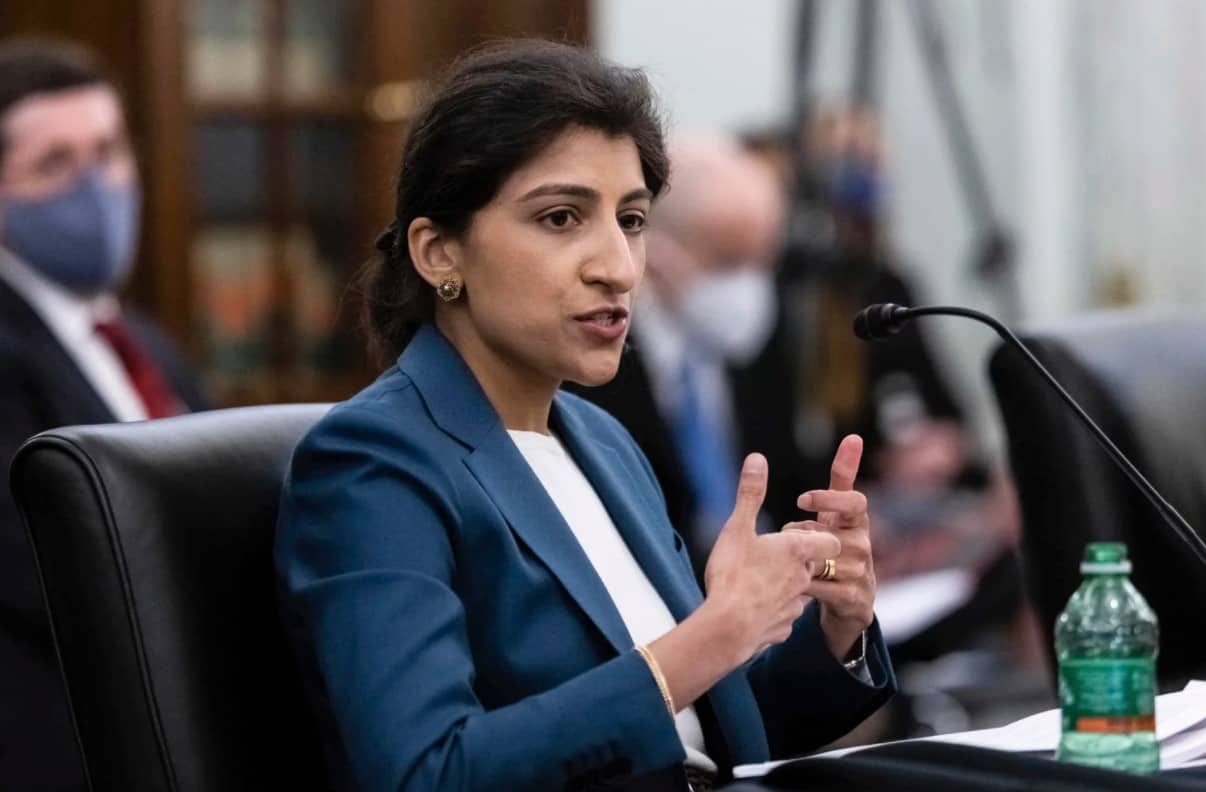President Joe Biden has named Lina Khan as the chairwoman of the Federal Trade Commission, giving the regulatory authority’s top spot to one of Silicon Valley’s most prominent critics.
The surprise move elevating Khan to one of the most powerful regulatory positions in Washington was announced by Sen. Amy Klobuchar, D-Minn., at the start of a hearing on Tuesday. It came shortly after the Senate confirmed Khan as a commissioner in a 69-28 vote.
Democrats will now have a majority on the five-member commission, which Khan likely will steer toward more aggressive examination of tech companies’ alleged abuse of monopoly power.
Elizabeth Warren, D-Mass., said Khan leading the FTC is “tremendous news,” saying in a statement that “giant tech companies like Google, Apple, Facebook and Amazon deserve the growing scrutiny they are facing and consolidation is choking off competition across American industries.”
Despite the bipartisan vote, Khan has drawn the ire of some Republicans, including Sen. Mike Lee of Utah. He has said Khan “lacks the experience necessary” for the FTC and her views on U.S. antitrust laws are “wildly out of step with a prudent approach to the law.”
The rapid rise of Khan, 32, a Columbia Law School associate professor, followed a 2017 scholarly paper entitled “Amazon’s Antitrust Paradox” that she wrote as a law student at Yale University. The paper went viral in some influential circles and led some to call her the leader of the progressive movement known as “hipster antitrust.” She argued that the unmatched dominance of tech titans like Amazon shows that U.S. antitrust laws are broken and that regulations need to be rewritten to curb abuses of power.
Since the late-1970s, courts have largely interpreted U.S. antitrust law to mean that if prices are lower for consumers, then markets are working as intended. But Khan said that view is out of step with the modern economy. She argued that tech companies have used predatory tactics to kick competitors out of the game, which she says should be seen as illegal under fair competition laws.
“She challenged an orthodoxy with others, built a new community, that has changed the debate,” said Bill Kovacic, a former chairman of the Federal Trade Commission.
In recent months, Khan helped write a sweeping 449-page report for House Democrats that outlined the case for paring back the power of Apple, Amazon, Facebook and Google. House lawmakers last week introduced five bills to greatly regulate, and perhaps even break up some of the companies.
Khan is the latest Big Tech critic whom President Biden has tapped to take on the powerful industry. Tim Wu, who also supports increased government oversight of the tech industry, serves on the White House National Economic Council, where he is a special assistant to the president for technology and competition policy.
Biden has, however, been criticized for not acting fast enough to fill other key antitrust enforcement roles in his administration. Nearly halfway through his first year, Biden has yet to announce his choices to lead the Justice Department’s antitrust division and to fill an empty seat on the Federal Communications Commission.
Still, Khan’s confirmation on Tuesday was hailed by those pushing for greater enforcement of competition laws, like the Washington-based American Economic Liberties Project.
Sarah Miller, executive director the group, said Khan’s ability to win bipartisan support shows policymakers’ “hearty appetite to rein in Big Tech.”
Miller added: “Her presence on the FTC marks the beginning of the end of an era of lawlessness for powerful corporations that they’ve enjoyed at the expense of workers, smaller businesses and democracy.”
Yet the Information Technology & Innovation Foundation, a think tank supported by the tech industry, countered that Khan’s leadership could harm American consumers and innovation.
“Consumers may no longer be able to benefit from large companies’ economies of scale,” said the group’s Aurelien Portuese. “In a time of increased global competition, antitrust populism will cause lasting self-inflicted damage that benefits foreign, less meritorious rivals.”
Kovacic, the former FTC chairman, said some of the tech industry’s pushback is connected to pure shock over Khan’s ascendance.
“They never saw this coming,” Kovacic said. “I would guess the level anxiety within that community increased dramatically in the last 24 hours.”

